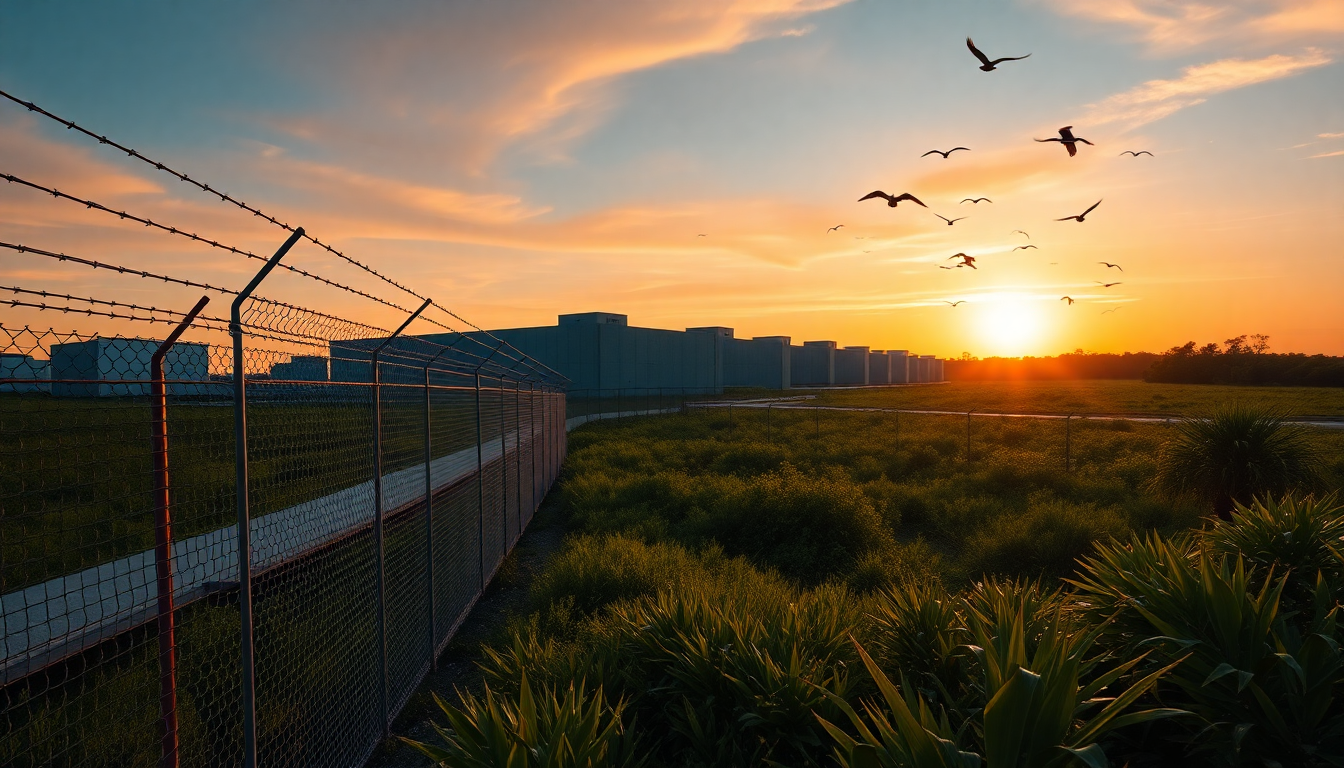Table of Contents
The ongoing saga surrounding the controversial immigration detention facility in the Florida Everglades has taken a dramatic turn: a judge has now ordered its closure. Dubbed ‘Alligator Alcatraz’, this facility has been under the microscope since it was hastily constructed to hold up to 3,000 detainees. As we unpack the implications of this ruling, it’s clear that the closure isn’t just about legalities and ethics—it’s a sign of the changing tides in U.S. immigration policy.
Background of the Facility and Its Purpose
This facility was set up as part of a wider initiative during President Trump’s administration, which focused heavily on deporting individuals living in the U.S. illegally. The construction was rushed, and it quickly became operational, at one point housing nearly 1,000 detainees. However, the current situation is quite different, with reports suggesting that only 300 to 350 individuals remain. But what does this drastic drop in numbers mean for the facility’s future and the overall approach to immigration enforcement in the area?
Legal Challenges and Administrative Responses
The legal wrangling over the facility has ramped up, with Florida’s administration pushing back against the judge’s closure order. This tug-of-war highlights not only the divisive nature of immigration policy but also the challenges state officials face in implementing these policies. Kevin Guthrie, the Executive Director of the Florida Division of Emergency Management, mentioned in an email that the facility could be completely empty in just a few days. This statement really drives home the urgency of the situation as state officials navigate the rapidly shifting legal landscape.
As officials grapple with the judge’s ruling, the reactions from local leaders and advocacy groups are crucial. There’s a rising call for transparency and accountability in the enforcement of immigration policies, especially in facilities that have faced considerable public backlash. Communication between officials and community figures, like Rabbi Mario Rojzman, underlines the need for support and chaplaincy services for those impacted by these detention policies.
Future Implications for Immigration Policy
The looming closure of ‘Alligator Alcatraz’ serves as a snapshot of the larger immigration debate unfolding in the United States. As legal frameworks evolve, the reactions from state and federal officials will play a significant role in shaping future policies. Could this facility’s closure signal a move toward more compassionate immigration practices, or will it deepen the existing divides around immigration enforcement?
Looking ahead, it’s crucial for policymakers to think carefully about the effects of detention practices on individuals and their communities. The way forward may necessitate a reassessment of how immigration is handled, prioritizing compassion and justice instead of punitive measures. The closure of this facility could very well mark the beginning of a larger movement aimed at reforming immigration policies to uphold the dignity of all individuals involved.


